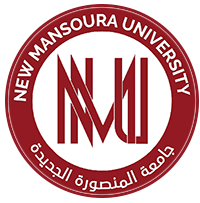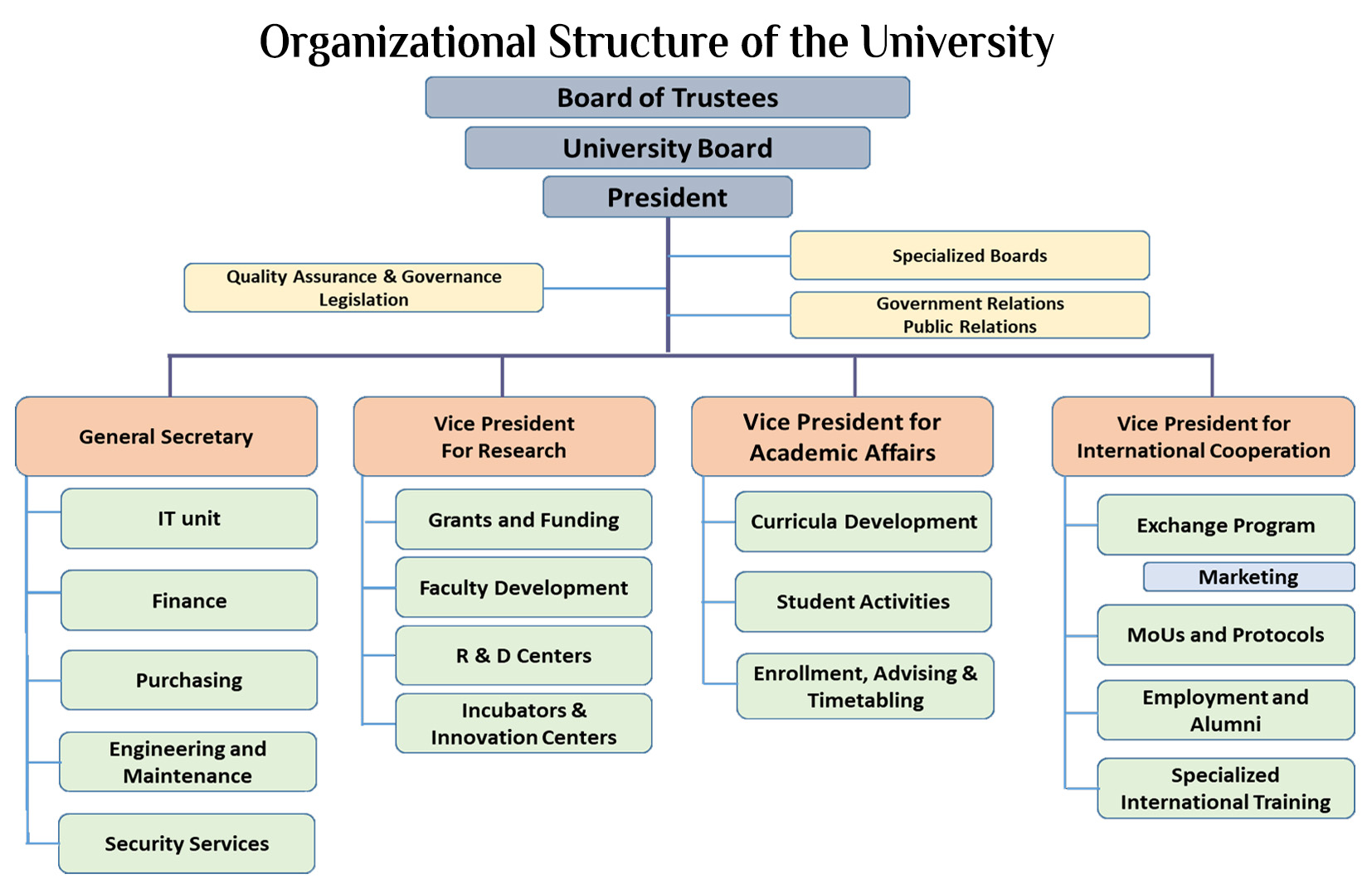




To be locally and internationally outstanding in education, scientific research and community service in the light of international standards; contribute to achieving the goals of sustainable development within the framework of community values for a better life and competitive capabilities at the regional and global levels; and to have students who will become future leaders capable of bringing about tangible change for themselves, their countries and their regional and international environment, and who have the ability of lifelong learning.
New Mansoura University aims to be a smart university that provides competitive educational programs that contribute to the preparation of graduates who are professionally, capable of keeping pace with the scientific and technological changes and achieving competitiveness in the regional and global labor markets, and committed to professional values and ethics. The University is committed to carrying out applied scientific researches to develop the society and solve its problems. University education is the starting point towards making use of energies, developing talents, and having a profession. Scientific research is a way for improving life.

The universities seek to achieve their mission by emphasizing a set of core values that express their internal identity and give them their distinctive personality:
To strive to be the best in all that the universities offer in terms of education, research, creative expression and community service, and the use of international professional standards in the design, implementation, management, and evaluation of programs.
Develop the spirit of innovation, initiative and excellence, and the application of the best global practices in all university activities, while emphasizing fostering creativity and innovation to achieve academic excellence.
Collaboration with other local and regional institutions and international universities through teamwork and the establishment of integrated partnerships, cooperation with the government, and public and private sectors, to meet their needs, hence enforcing the linkage between work, education and learning and building human resource capacities serving the local and regional environment.
Provide high quality programs in accordance with international best practices and international standards for education and learning in the fields of education, research and service.
A clear strategic plan with practical dimensions that will raise the level of education and learning and produce prestigious research.
Providing students with an opportunity to engage in a lifestyle that contributes to their personal development and paves the way for them to succeed in dealing with the knowledge society.
Respect for the values and rich heritage of the nation and strive to participate effectively in maintaining it, and treat all individuals on the basis of dignity and justice, and promote the values of respect and understanding of the other, respect traditions and learning from past experience.
Commitment to study the challenges facing Egypt, the region and the world at large, by adapting the scientific potential and creative capabilities to meet these challenges, and harnessing those capabilities towards the welfare of society.
Commitment to the highest moral, and civil responsibility, and commitment to work fairly and transparently to achieve justice and enhance trust, credibility and institutional accountability in the light of global humanitarian ideals.
Commitment to decisions and plans that are based on evidence and analysis, while adopting effective and efficient systems and procedures.
The belief that the search for knowledge, understanding and personal and professional development should last a lifetime and does not stop at a certain age.
|
Governor of Dakahlia |
|
|
Prof. Dr. Ahmed Amin Hamza |
President of the British University and former President of Mansoura University "Chairman of the Board of Trustees" |
|
Prof. Dr. Ahmed Bayoumi Shehab El Din |
Former President of Mansoura University, Vice President of the Board of Trustees |
|
President of New Mansoura University |
|
|
Prof. Dr. Muhammad Saber Ibrahim Arab |
Former Minister of Culture |
|
Prof. Dr. Nadia Iskandar Zakhari Shenouda |
Former Minister of Scientific Research |
|
Dr. Zahi Abbas Abdel Wahab Hawass |
Former Minister of Antiquities |
|
Dr. Mounir Fakhry Abdel Nour |
Former Minister of Tourism |
|
President of Mansoura University |
|
|
Prof. Dr. Fawzi Ali Turki |
Former President of Kafrelsheikh University |
|
Mr. Hisham Ahmed Mahmoud Okasha |
Chairman of the Board of Directors of the National Bank of Egypt |
|
Prof. Dr. Madiha Mahmoud Khattab |
Professor of Internal Medicine and former Dean of Cairo Medical School |
|
Prof. Dr. Ejlal Abdel Moneim Hafez |
Professor and former Dean of the Faculty of Commerce, Ain Shams University |
|
Prof. Dr. Mustafa Mounir Mahmoud |
Technical advisor to the Minister of Housing, Utilities and New Urban Communities |
|
Prof. Dr. President of New Mansoura University |
Chairman of the Board |
|
Prof. Dr. / Dean of the Faculty of Business |
Member |
|
Prof. Dr./ Dean of the Faculty of International Legal Transactions |
Member |
|
Prof. Dr./ Dean of the Faculty of Textile Science and Engineering |
Member |
|
Mr. Prof. Dr./ Dean of the Faculty of Engineering |
Member |
|
Prof. Dr./ Dean of the Faculty of Computer Science and Engineering |
Member |
|
Prof. Dr./ Dean of the Faculty of Basic Sciences |
Member |
|
Prof. Dr./ Dean of the Faculty of Medicine |
Member |
|
Prof. Dr./ Dean of the Faculty of Dentistry |
Member |
|
Prof. Dr./ Dean of the Faculty of Pharmacy |
Member |
|
Adviser to the President of the University appointed by a decision of the Minister of Higher Education |
Member |
| General Director of the University | Council Secretary |